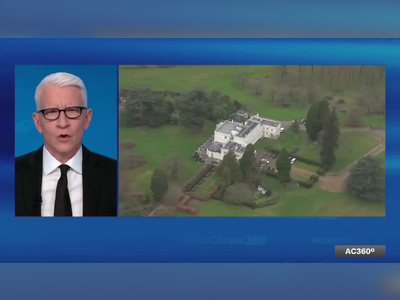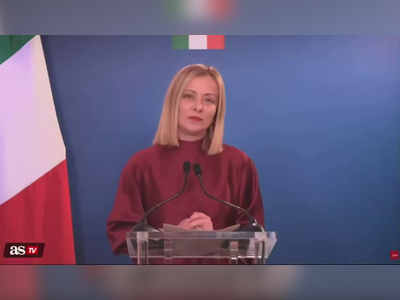
Hillingdon Council Faces Financial Crisis Amid Budgetary Shortfalls
Significant cost-saving measures are required to prevent possible bankruptcy as reserves dwindle.
Hillingdon Council is at a critical juncture, facing the necessity to implement £34 million in savings outlined in its upcoming budget to avoid the potential declaration of bankruptcy.
A report from the Chief Financial Officer indicates that the issuance of a Section 114 Notice is a distinct possibility due to the council's declining reserves, overspending practices, and failure to achieve savings targets.
The council's reserves have notably decreased by 25% in the fiscal year 2023/24, with projections indicating a further reduction to £20.3 million in the next year, culminating in a total loss of £41.7 million over four years.
This precarious financial state has prompted the council leadership, particularly Council Leader Ian Edwards, to express optimism about meeting the required savings.
Edwards stated his confidence in the ability of council officers to deliver on financial targets, asserting that the savings strategy could lead to a turnaround in the council's fiscal health.
Since 2010, Hillingdon has consistently implemented savings averaging £13 million annually; however, the current budgetary demands require more than double that figure for the 2025/26 financial year.
The council's financial difficulties are exacerbated by a culture described in the report as one where 'overspending is unacceptable' needs to be established.
The report expresses concerns surrounding the council's reliance on using its dwindling reserves to fund ongoing operations.
If the council fails to achieve the planned savings by the end of the fiscal year, it may require Exceptional Financial Support (EFS) from the government, which the report notes is unlikely to be granted mid-year.
This situation underscores the risks associated with exceeding expenditure beyond income, potentially leading to the issuance of a S114 Notice, which would halt all non-essential spending.
Despite previous statements indicating that the council was in a 'sound' financial position and not at risk of a Section 114 notice, this new report challenges those assertions.
Edwards maintains confidence in the council's capabilities, asserting the budget will not necessitate government intervention.
The council has historically prided itself on maintaining low taxes and charges for residents, a stance that the report associates with financial challenges.
It highlights the need for difficult decisions that could affect public services, an outcome that the council had sought to avoid.
The report further reveals significant governance issues, including a lack of proper oversight, which has impeded the council's ability to track its financial status accurately.
Audit findings indicate the use of subpar quality data and inadequate systems, hampering the council’s capacity to make informed financial decisions.
A transition to a new financial management system has been attempted but reportedly suffered from poor implementation.
Edwards has acknowledged the need for improved financial transparency and accountability within the council, including better reporting practices and greater accountability from senior management.
Hillingdon Council is set to present its budget, outlining the strategy to achieve the necessary £34 million in savings during an upcoming meeting.
If these savings are insufficient, the council could find itself seeking government assistance, which, if granted, would limit its decision-making autonomy.
The report also mentions that the government is increasingly reluctant to provide EFS in the absence of evidence of drastic measures being taken at the local level.
Should a S114 Notice be issued, all non-essential expenditures would cease, and externally appointed commissioners could be imposed on the council.
The financial report has drawn criticism from opposition leaders, who have voiced dismay at the prospect of the council's impending financial instability.
Hillingdon Council will convene to discuss the challenging financial report and proposed saving measures, with the atmosphere marked by concern over future governance and service continuity.
A report from the Chief Financial Officer indicates that the issuance of a Section 114 Notice is a distinct possibility due to the council's declining reserves, overspending practices, and failure to achieve savings targets.
The council's reserves have notably decreased by 25% in the fiscal year 2023/24, with projections indicating a further reduction to £20.3 million in the next year, culminating in a total loss of £41.7 million over four years.
This precarious financial state has prompted the council leadership, particularly Council Leader Ian Edwards, to express optimism about meeting the required savings.
Edwards stated his confidence in the ability of council officers to deliver on financial targets, asserting that the savings strategy could lead to a turnaround in the council's fiscal health.
Since 2010, Hillingdon has consistently implemented savings averaging £13 million annually; however, the current budgetary demands require more than double that figure for the 2025/26 financial year.
The council's financial difficulties are exacerbated by a culture described in the report as one where 'overspending is unacceptable' needs to be established.
The report expresses concerns surrounding the council's reliance on using its dwindling reserves to fund ongoing operations.
If the council fails to achieve the planned savings by the end of the fiscal year, it may require Exceptional Financial Support (EFS) from the government, which the report notes is unlikely to be granted mid-year.
This situation underscores the risks associated with exceeding expenditure beyond income, potentially leading to the issuance of a S114 Notice, which would halt all non-essential spending.
Despite previous statements indicating that the council was in a 'sound' financial position and not at risk of a Section 114 notice, this new report challenges those assertions.
Edwards maintains confidence in the council's capabilities, asserting the budget will not necessitate government intervention.
The council has historically prided itself on maintaining low taxes and charges for residents, a stance that the report associates with financial challenges.
It highlights the need for difficult decisions that could affect public services, an outcome that the council had sought to avoid.
The report further reveals significant governance issues, including a lack of proper oversight, which has impeded the council's ability to track its financial status accurately.
Audit findings indicate the use of subpar quality data and inadequate systems, hampering the council’s capacity to make informed financial decisions.
A transition to a new financial management system has been attempted but reportedly suffered from poor implementation.
Edwards has acknowledged the need for improved financial transparency and accountability within the council, including better reporting practices and greater accountability from senior management.
Hillingdon Council is set to present its budget, outlining the strategy to achieve the necessary £34 million in savings during an upcoming meeting.
If these savings are insufficient, the council could find itself seeking government assistance, which, if granted, would limit its decision-making autonomy.
The report also mentions that the government is increasingly reluctant to provide EFS in the absence of evidence of drastic measures being taken at the local level.
Should a S114 Notice be issued, all non-essential expenditures would cease, and externally appointed commissioners could be imposed on the council.
The financial report has drawn criticism from opposition leaders, who have voiced dismay at the prospect of the council's impending financial instability.
Hillingdon Council will convene to discuss the challenging financial report and proposed saving measures, with the atmosphere marked by concern over future governance and service continuity.











